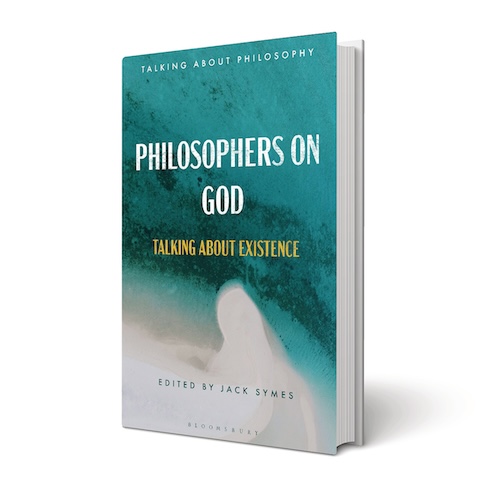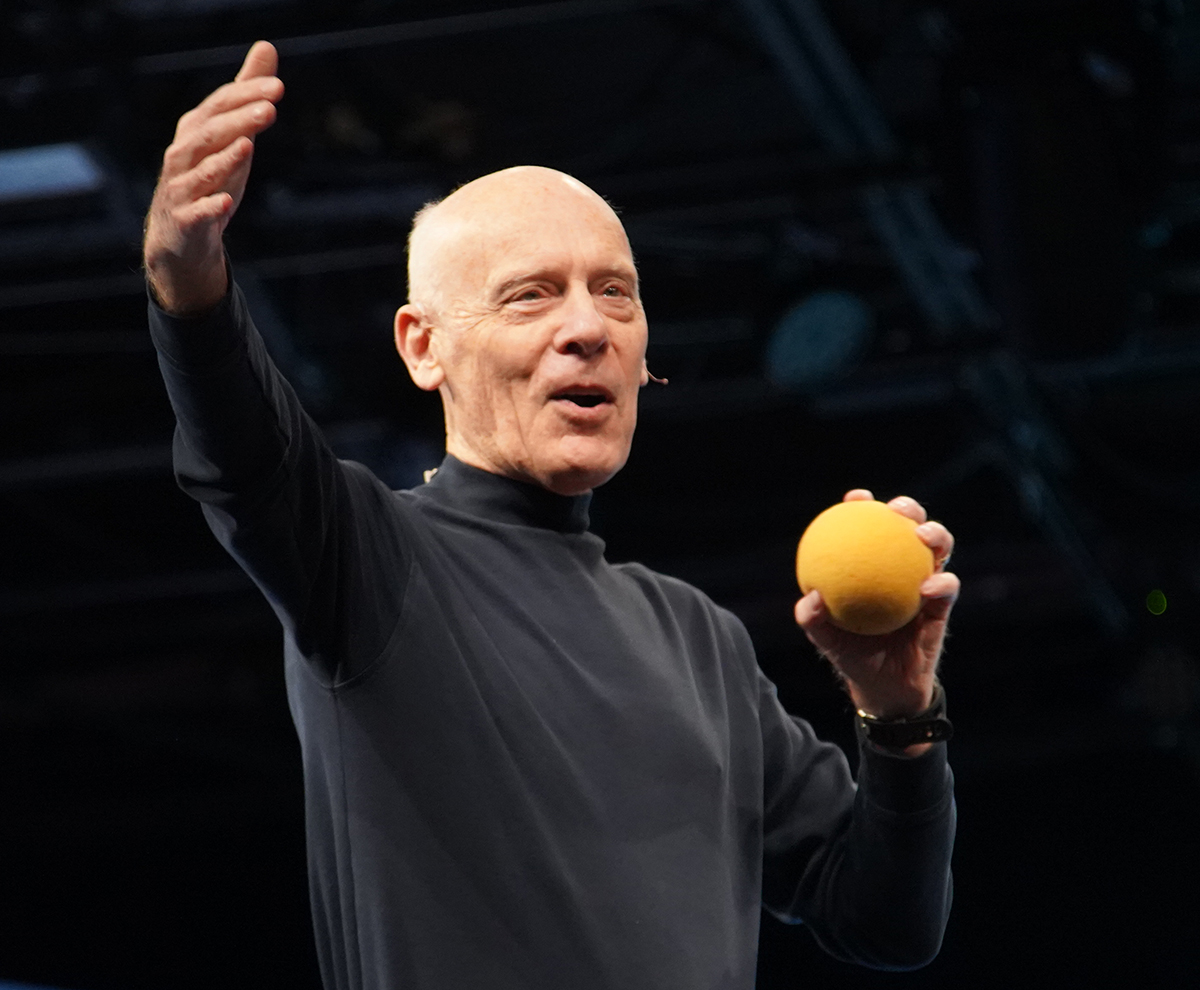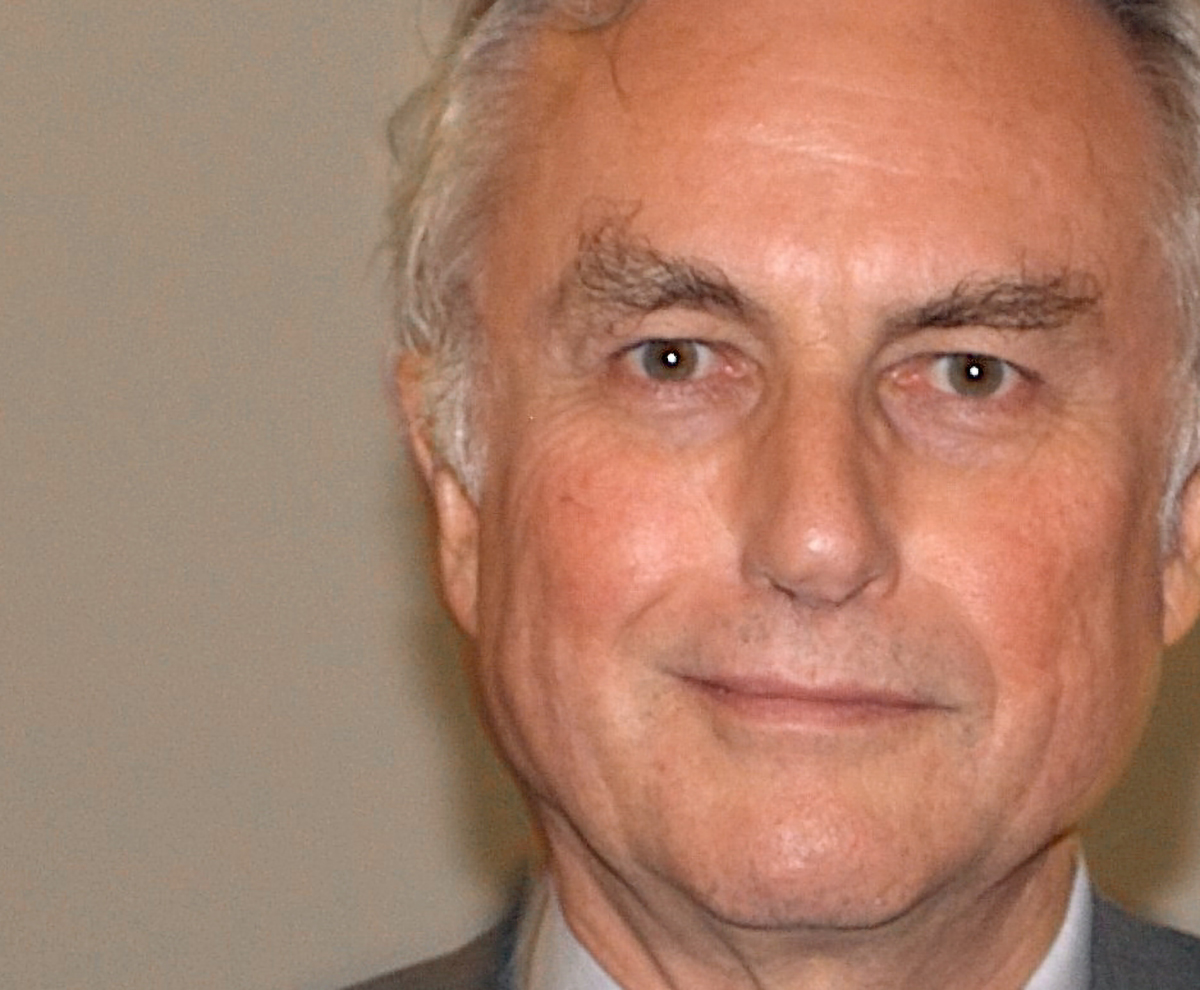As a podcast and radio host who deals with the intersection of faith, culture, and philosophy, I’ve hosted hundreds of debates between Christians and atheists over the past two decades. One of the most memorable encounters was with Peter Atkins, an emeritus professor of chemistry at Oxford University.
If you had any doubts that the New Atheism is a spent force, a new book will dispel them. And if you ever wonder whether Christianity has something unique to offer in the debate over God’s existence, the same book will prove an occasion of doubt, unfortunately.

Edited by Jack Symes
(Bloomsbury Academic, 2024)
An outspoken atheist, Atkins is well known for his brash style of debate that frequently involves deriding the faith claims of any believer as “lazy thinking,” “poppycock,” or worse. The guests I have brought on to challenge Atkins, the “New Atheist” par excellence, are usually braced for his theatrical mockery and happy to shrug off any impolite remarks.
On one occasion, I invited him to debate the origin of the laws of the universe with Hugh Ross, a leading Christian astrophysicist. Ross, who founded the science and faith organization Reasons to Believe, argues that the properties of the universe—its beginning in time and the extraordinary degree to which it seems to be fine-tuned to allow life to exist—are evidence of a creator behind the cosmos. Naturally, Atkins disagreed and pushed back with his usual rhetorical bluntness.
I eventually asked Atkins what sort of evidence might come close to making him open to the concept of God. Was there any chink in his atheist armor? For instance, what if the stars in the sky lined up to spell out “Peter, please believe in me—it’s about time”?
“I’d put it down to personal madness,” Atkins responded.
“In that case, it sounds like there’s no evidence that would persuade you away from atheism,” remarked Ross.
“To be honest, I think that’s probably the case,” replied Atkins.

Atkins’ frank answer was revealing. I could probably have given him a dozen more lines of hypothetical evidence for God and been met with similar naturalistic explanations: A Christian prophet predicts everything that happens to you over a 24-hour period? A lucky guess. Someone is healed of lifelong blindness in front of you? Weird things happen. Jesus appears in the room and personally asks you to believe in him? I must be dreaming.
Even those who claim to “follow the evidence” may have erected invisible barriers that cannot be crossed. Some types of explanation are simply off the table. And for someone like Atkins, the “God” explanation is simply … unthinkable.
Atkins may represent an extreme example of inflexible skepticism. But it’s helpful in explaining why a book on the philosophical arguments for and against God will inevitably be limited in its ability to persuade. Many people—of both the believing and nonbelieving sort—have already made up their minds and tend to filter any new arguments through their already-established worldview. It’s a very human trait. Few of us exist as show-me-the-evidence-and-I’ll-believe, open-minded enquirers.
Perhaps Jack Symes, editor of Philosophers on God: Talking about Existence isn’t too concerned about changing the mind of any particular convinced believer (or nonbeliever). As atheist novelist Philip Pullman’s honest endorsement of the book’s varied arguments for and against God states, “None persuaded me completely. I end much as I began … no wiser than before, but much better informed.”
In gathering together a set of conversations with notable thinkers across the faith and non-faith spectrum, perhaps Symes hopes at least to show the average interested agnostic that there’s a lively conversation going on in the realm of philosophy, science, and theology, even if he doesn’t intend to persuade anyone to change their mind.
The book’s 12 contributions are mostly based on edited transcripts of interviews adapted from Symes’ own Panpsycast podcast, which frequently features him in conversation with leading thinkers on consciousness, philosophy, and metaphysics. There are also some bespoke articles that outline the views of the authors in question.

An impressive cast has been assembled, including well-known names such as William Lane Craig, Richard Swinburne, Richard Dawkins, and Daniel Dennett (who passed away only recently). These thinkers represent the familiar “Christian theists vs. New Atheists” section of the book, but a number of other perspectives are also present, including Muslim, Hindu, and pantheist contributors.
The book is aimed squarely at an entry-level reader, and Symes does an admirable job of introducing and appending each chapter with his own nontechnical commentary on the philosophical concepts outlined. There are also “info” boxes scattered throughout each chapter that explain a variety of the concepts and figures referenced. A smattering of humor accompanies most entries (you’ll often find out which film actors’ work Symes does and doesn’t appreciate). These will be received either as a dose of sugar to help the medicine go down or a grating intrusion after a while.
Personally I quite enjoyed the humor, but what did mildly irk this particular reader was Symes’ insistence on referring to God as “she” whenever a pronoun was required. If the point was to appear academically neutral regarding historic norms around anthropomorphic terminology for God, then you might expect both genders to appear in equal measure. Exclusive use of “she” feels like a ham-fisted attempt at being provocative, or perhaps (with a knowing wink) betrays Symes’ own skepticism as to the existence of a personal God. Nevertheless, most of the time the editor charitably represents the views of each contributor, without giving away too much about his own philosophical commitments.
Knowing where the host of these various conversations stands himself, however, will help the reader parse the overall thrust of this book.
Symes himself is not a theist, but he’s not exactly a typical atheist naturalist either. He’s an adherent of an increasingly fashionable position called “panpsychism”—the view that consciousness is the fundamental constituent of reality and that everything, from the smallest atom to the most complex human brain, is “conscious” at some level. His first book, a similar collection of conversations titled Philosophers on Consciousness, conveyed the variety of views on neuroscience and the mind that exist. It’s a natural next step to cover the God question, which lurks only a step or two behind the consciousness question.
While the worldviews on offer here are diverse, the order in which they are represented in the book is not insignificant.
We begin with three Christian philosophers—Daniel Hill, Richard Swinburne, and William Lane Craig—along with one Muslim philosopher, Mohammad Saleh Zarepour. These four collectively represent a general case for monotheism.
Significantly, apart from some disagreement about whether God can be a Trinity, there’s nothing terribly “Christian” about the case for God made by the Christian contributors. Jesus does come into view briefly when William Lane Craig answers questions about his death and resurrection. However, the focus is on cosmological and philosophical arguments for a creator God that can just as happily be employed by Muslim protagonists. Indeed, Craig’s famous “Kalam Cosmological Argument” was proposed in its first form by a medieval Muslim philosopher.
Admittedly, each contributor is at the mercy of what the editor chooses to focus on. Likewise, there’s nothing wrong with using these arguments; many have found them very persuasive. But to hear only abstract arguments for a deity from Christian philosophers is to miss the very heart of Christianity—the incarnation and the very distinctive sort of God revealed through the historical Jesus’ death and resurrection.
Next we are treated to four atheists making the case for why God does not exist. Appropriately, two of the original “four horsemen” of New Atheism are represented: Richard Dawkins and the late Daniel Dennett. This time, the atheist quartet is completed by Susan Blackmore and Stephen Law, who both do their best to channel the spirit of the original four horsemen (which included the late Christopher Hitchens and the still very-much-alive Sam Harris).
There’s nothing terribly ‘Christian’ about the case for God made by the Christian contributors.
These four atheist thinkers are well known in their spheres of influence. For a book titled Philosophers on God, however, it’s unclear why Dawkins (a biologist) and Blackmore (a psychologist) are included. They certainly have their reasons for disbelieving in God … but they aren’t very philosophical ones.
Blackmore asserts that God belief is a “memeplex,” an evolutionary misfiring that results in our believing in false and potentially dangerous religions. But it’s been noted by scientist-theologians such as Alister McGrath that, unlike biological genes, the concept of memes rests on a very shaky ontology. Yet this is only half the problem with Blackmore’s chapter. The real issue is that her critique of religion never intersects with any of the philosophical arguments for God that have been presented in the previous four chapters.
The same is largely true of Dawkins’ contribution, “Why I’m an Atheist.” He argues (as he has many times elsewhere) that we no longer need God now that we have Darwin. Whatever you think of his thesis, its simply fails to connect with any of the actual arguments for God in contemporary philosophy. When the biologist does interact with some of the arguments from cosmology and fine-tuning, his responses are underwhelming as philosophical critiques.
It’s not that I blame Dawkins; after all, he’s a biologist not a philosopher. But I can imagine many atheist readers feeling let down given the many very capable atheist philosophers in existence who could have engaged more fruitfully with the opening arguments in the book. As it stands, the arguments of the New Atheists and the Christian philosophers seem to pass each other like ships in the night.
I was also left with the nagging feeling that the atheist contributions feel very, well, mid-2000s. Now that New Atheism itself has waned, the New Atheist talking points of Dawkins, Blackmore, and Dennett feel somewhat dated.
Most cultural thinkers have long shed the dewy-eyed optimism of the New Atheist promises of a utopian future based on science and reason. The quasi-religion of the postmodern ideologies that have replaced Christianity in the West and their attendant culture wars are not seen as signs of progress. Even Dawkins seemed to be pining nostalgically for a more civil age in a recent viral video in which he declared himself a “cultural Christian.”
Likewise, many other secular intellectuals, such as Douglas Murray, Jordan Peterson, and Tom Holland, have been asking where exactly we are heading in the absence of Christianity. Significantly, in her case against religion, Blackmore approvingly mentions the example of Ayaan Hirsi Ali’s rejection of her fundamentalist Islamic upbringing. Hirsi Ali went on to become the most famous female representative of the New Atheist movement. Yet, in November last year, Hirsi Ali famously declared herself a Christian, precisely because she sees Christianity as the only possible bulwark against a variety of threats to Western democracy. Moreover, she wrote that “atheism failed to answer a simple question: what is the meaning and purpose of life?”

In my own recent book and podcast series The Surprising Rebirth of Belief in God, I profile why the New Atheism grew old and how a plethora of secular thinkers such as Hirsi Ali, Holland, Murray, and Peterson are increasingly pointing their audiences back toward the value of faith. Reading the anachronistic arguments of Blackmore and Dawkins only confirmed my sense that the New Atheism is well and truly over as an intellectual project.
Following in their footsteps, philosopher Stephen Law contributes his entertaining-but-somewhat-quirky “Evil God” argument against theism, and Daniel Dennett riffs on his well-worn thesis that religion is a result of our overactive wiring for agency detection. Breaking up this extended case for scientific naturalism, we are treated to an esoteric theistic response to the problem of suffering from philosopher Yujin Nagasawa.
The various theistic and atheistic accounts of God and existence are evidently intended to build upon each other as, in his accompanying commentary, Symes seeks to point out the key points of connection and disagreement between them. Naturally, there are many more perspectives that could have been included, such as classical arguments for God in the Thomistic tradition, the moral argument, and evidential arguments from history, but one book can contain only a limited range of views, and Symes presents a selection of perspectives he finds most interesting.
But if Symes intends to lead us in any particular direction in the end, then it is the final trio of thinkers who seem to give the game away.
First there is a conversation with Silvia Jonas on why she believes that the whole project of natural theology in support of a personal God who created the universe is a dead end but that the divine may still be usefully invoked in questions of meaning and morality. This is followed by Hindu philosopher Jessica Frazier arguing for “Brahman”—the view that divinity and the universe are intertwined—and Hinduism’s traditional polytheism as an anthropomorphic expression of a transcendent “core.”
Pantheism stretches the concept of God so thin and is so all-encompassing that it fails to say anything interesting at all.
The climax comes in the final chapter as Asha Lancaster-Thomas, a pantheist, argues that God and the universe are the same thing. On this account, all the preceding debates between theists, atheists, and agnostics can be settled by simply giving the universe an alternative name. And this (I suspect) is where Symes also lands, as pantheism is almost synonymous with panpsychism. God is the unity of consciousness, the universe is the totality of consciousness, ergo the universe is God.
Personally, I find pantheism a pointless sort of philosophy. It stretches the concept of God so thin and is so all-encompassing that it fails to say anything interesting at all. Lancaster-Thomas says her pantheism inspires her “to be good to the ultimate reality we exist in, to live in harmony with the world, to further our understanding of the cosmos.” It’s all admirable stuff but could equally be the bumper sticker sentiments of a thousand different humanistic philosophies. And I find it hard to see why anyone should feel motivated to such moral ends by a view of existence that (in her own words) boils down to “We are part of the world. We always will be.”
If this is the description of God that Symes himself lands upon, then he is as entitled to his worldview as any of his contributors, but since he plays the part throughout of an often-helpful guide and interpreter, I wish he had been more explicit about his own commitments rather than forcing this reviewer to try to read between the lines. In my experience, even when occupying a neutral moderator’s chair, it can still be helpful to wear your own faith on your sleeve from time to time.
In conclusion, allow me to wear my faith on my sleeve. Whether someone argues for (or against) God on the grounds of Christianity, atheism, Islam, Hinduism, or something else, I can’t improve on the words of C.S. Lewis:
The Pantheist’s God does nothing, demands nothing. He is there if you wish for Him, like a book on a shelf. He will not pursue you. There is no danger that at any time heaven and earth should flee away at His glance.… It is always shocking to meet life where we thought we were alone. “Look out!” we cry, “it’s alive.” And therefore this is the very point at which so many draw back—I would have done so myself if I could—and proceed no further with Christianity. An “impersonal God”—well and good. A subjective God of beauty, truth and goodness, inside our own heads—better still. A formless life-force surging through us, a vast power which we can tap—best of all. But God Himself, alive, pulling at the other end of the cord, perhaps approaching at an infinite speed, the hunter, king, husband—that is quite another matter.







